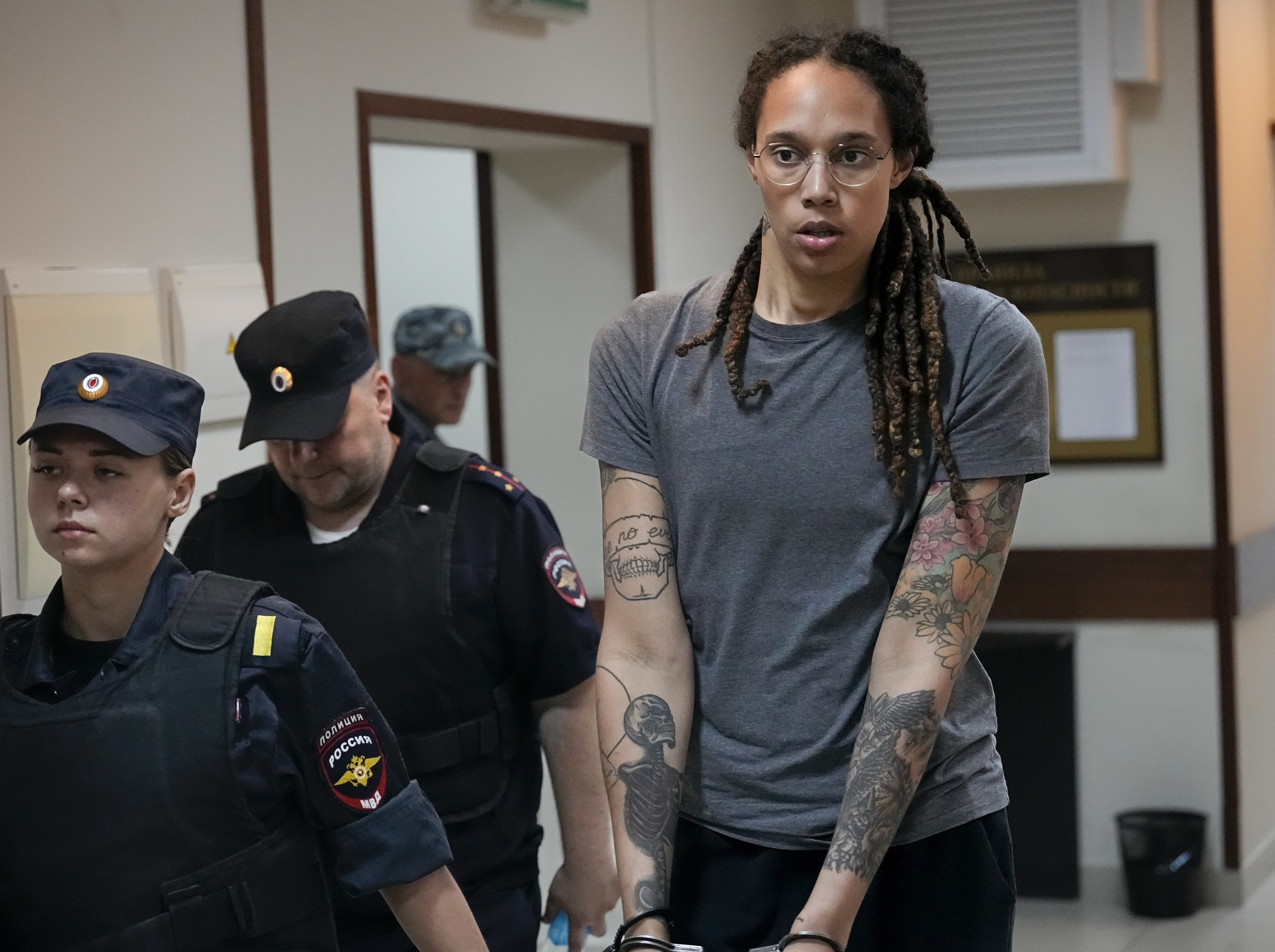A Russian arms dealer labeled the “Merchant of Death” was released from a U.S. prison Thursday in exchange for WNBA star Brittney Griner.
Viktor Bout, 55, had served 11 years of his 25-year prison sentence after being convicted in 2011 on terrorism charges for selling arms to Colombian rebels, which prosecutors said were intended to kill Americans.
In Russia, however, he's seen as a swashbuckling businessman who the Kremlin say was unjustly imprisoned after an overly aggressive U.S. sting operation.
Here's what we know about Viktor Bout:
What was Viktor Bout arrested for and when was he convicted?
In March 2008, Bout was arrested in Bangkok, Thailand, after U.S. authorities tricked him into leaving Russia for what he thought was a meeting over a business deal to ship what prosecutors described as “a breathtaking arsenal of weapons — including hundreds of surface-to-air missiles, machine guns and sniper rifles — 10 million rounds of ammunition and five tons of plastic explosives.”
He was taken into custody at a Bangkok luxury hotel after conversations with the Drug Enforcement Administration sting operation’s informants who posed as officials of the Revolutionary Armed Forces of Colombia, also known as the FARC. The group had been classified by Washington as a narco-terrorist group.
The “Merchant of Death” moniker was attached to Bout by a high-ranking minister of Britain’s Foreign Office. The nickname was included in the U.S. government’s indictment of Bout.

He was brought to the U.S. in November 2010. At his 2011 trial, his defense attorney claimed the U.S. targeted Bout vindictively because it was embarrassed that his companies helped deliver goods to American military contractors involved in the war in Iraq. The deliveries occurred despite United Nations sanctions imposed against Bout since 2001 because of his reputation as a notorious illegal arms dealer.
Feeling out of the loop? We'll catch you up on the Chicago news you need to know. Sign up for the weekly> Chicago Catch-Up newsletter.
He was convicted in 2011 on terrorism charges. Prosecutors said he was ready to sell up to $20 million in weapons, including surface-to-air missiles to shoot down U.S. helicopters. When they made the claim at his 2012 sentencing, Bout shouted: “It’s a lie!”
In April 2012, Shira A. Scheindlin, the former New York City federal judge who sentenced Bout before returning to private law practice, imposed the mandatory minimum 25-year sentence, but said she did so only because it was required.
Earlier this year, Scheindlin said she would not be disappointed by Bout’s freedom in a prisoner exchange for Griner.
“He’s done enough time for what he did in this case,” Scheindlin said in an interview, noting that Bout, a vegetarian and classical music fan who is said to speak six languages, has served over 11 years in U.S. prisons.
Bout has steadfastly proclaimed his innocence, saying he’s a legitimate businessman and didn’t sell weapons. He’s had plenty of support from high-level Russian officials since he was first arrested. A Russian parliament member testified when Bout was fighting extradition from Thailand to the U.S.
Last year, some of his paintings were displayed in Russia’s Civic Chamber, the body that oversees draft legislation and civil rights.
Bout had been held at the U.S. Penitentiary Marion, a medium security federal prison in Marion, Illinois.
“We can confirm, Viktor Anatoliy Bout is no longer in the custody of the Bureau of Prisons,” the prison said Thursday in a statement to USA Today. “For privacy, safety, and security reasons, we do not discuss any individual inmate's conditions of confinement, to include transfers or release plans.”
Did Viktor Bout inspire Nicolas Cage character Yuri Orlov in "Lord of War"?
The 2005 Nicolas Cage movie, “Lord of War” was loosely based on Bout, a former Soviet air force officer who gained fame supposedly by supplying weapons for civil wars in South America, the Middle East and Africa. His clients were said to include Liberia’s Charles Taylor, longtime Libyan leader Moammar Gadhafi and both sides in Angola’s civil war.
However, in the Hollywood version of the story, Cage's character Yuri Orlov, an international arms dealer, evades his American authorities.That's because Bout was still at-large when the movie was made. He was eventually arrested three years later.



